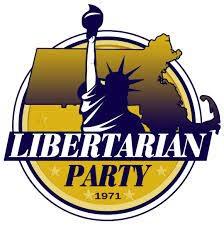LIBERTARIANS WILL never be a force to contend with in electoral politics because they are crippled by two disabilities from which Republicans and Democrats rarely suffer:
- They are animated almost entirely by principle.
- They have a sense of humor.
Both qualities were on display in Massachusetts last week, as four Libertarian candidates for state office gleefully made a hash of the state's absurd campaign finance law. For that service alone, Dean Cook (the Libertarian candidate for governor), Elias Israel (lieutenant governor), David Atkinson (secretary of state), and Carla Howell (auditor) deserve to be elected in November.

The 1994 Massachusetts law requires candidates for statewide office to declare an upper limit on the amount they will spend to get elected. Those who offer to abide by the "voluntary" cap specified in the statute are rewarded with a check from the state. Those who declare a higher limit receive no public funding — and their opponents get to spend up to the higher amount.
Thus, in the race for governor, Democrat Scott Harshbarger agreed to abide by the statutory cap — $1.5 million — and so qualified for $750,000 in public money. Republican Paul Cellucci forfeited the subsidy by declaring a higher limit, $5 million. Were they the only candidates, the cap would have been raised to $5 million. But Cook, the Libertarian candidate, declared a spending "limit" of $19,514,800,000. That blew a hole right through the campaign finance law, freeing all three candidates to spend, in effect, as much as they like. Of course, Cook also blew his chance to get a big chunk of taxpayers' money. But as a Libertarian, he wouldn't have taken public money anyway.
"$19,514,800,000," a Libertarian Party news release noted, "is greater than the entire gross domestic product of Bolivia" and "four times that of Iceland." It also happens to be the size of the bloated Massachusetts state budget for fiscal year 1999 — far and away the largest budget in Bay State history. The Legislature cannot keep its own spending under control, yet it has no trouble trying to compel candidates for office to limit theirs.
Libertarians and others oppose campaign spending limits on the grounds that they abridge political expression; restrict a candidate's ability to fund his campaign and you restrict his right to free speech. It is true that American politics is obsessed with raising money, but that is because campaign finance "reforms" have made fund-raising too difficult. The same 1994 Massachusetts law that created the spending limits also cut the maximum contribution from $1,000 to $500. That didn't make political campaigns cheaper. It simply made candidates work twice as hard to raise the same amount as before.
In politics, dollars equal speech. They also equal the only chance most challengers have of ousting an incumbent.
"The more one restricts financing," writes political commentator Avi Nelson in the summer issue of Commonwealth magazine, "the more it benefits the incumbents. Consider an extreme case: Suppose candidates could spend only $5 for a race. Who would win? The incumbents, of course, because of all the . . . advantages they already have. . . . The more one restricts campaign expenditures, the more incumbents are assured reelection."
But bad as the existing statute is, the proposed "Clean Elections Law" — Question 2 on the Massachusetts ballot in November — is far worse. Here is a law that would all but abolish the freedom of voters to contribute to candidates they like while forcing them to underwrite handouts to politicians they can't stand — or never heard of.
If Question 2 passes, any candidate who met a minimal fund-raising threshold would automatically receive a huge windfall of public money. For instance, a state Senate candidate who raised as little as $2,250 would be given $43,000 in the primary, and another $29,000 for the general election. Candidates for governor would have to raise no more than $30,000 in order to reap a bonanza of up to $2.55 million. Powerball will become passé. Anyone looking to get rich quick would be crazy not to run for office in Massachusetts.
The law would impose new spending limits, of which the state funding would comprise 80 percent. That is, voluntary donations would not be allowed to account for more than 20 percent of a candidate's budget. In theory the limits would be voluntary, but if a candidate went over them, punishment would be swift: His opponents would be given public "matching funds" equal to the amount of the excess spending. Meanwhile, political donations would be limited to $100.
The proponents of Question 2 say with straight faces that it is "elegant in its simplicity." In fact it is grotesquely convoluted: It runs to 7½ pages of dense, single-spaced text. It is almost surely unconstitutional. Worse, it is an affront to honest politics. "Clean" elections? There is nothing clean about forcing taxpayers to hand over money to candidates they don't support. And there is nothing dirty about voters who willingly write a check to a candidate they believe in.
Citizens who like having the state make their political choices for them will no doubt favor Question 2. Those who would rather make up their own minds have every reason to vote no.
(Jeff Jacoby is a columnist for The Boston Globe).
-- ## --
Follow Jeff Jacoby on Twitter.
Discuss his columns on Facebook.
Want to read more? Sign up for "Arguable," Jeff Jacoby's free weekly email newsletter.

